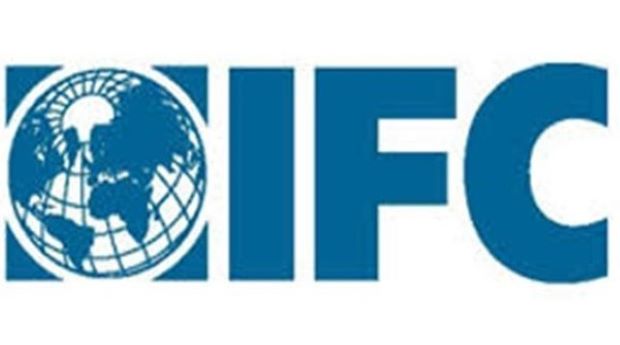Broadcasting
FITC Advocates Funding Intervention for Movie Industry

The Financial Institutions Training Centre has urged financial institutions in the country to create funding interventions for Nollywood to enable it to be more productive and have a greater impact on the economy.

Chizor Malize, the FITC Managing Director/Chief Executive Officer, stated this at the fifth edition of the annual seminar and Short Film Screening of Nollywood Creative Mind forum held in Lagos recently.
While speaking during her keynote address themed, ‘Finding Common Grounds for Collaboration Between the Film Industry and Financial Institutions,’ she emphasised the noteworthy achievements recorded by the industry.
According to her despite the potential of the Nollywood industry, the sector remains underfunded. She added that the industry’s frequent funding challenges have forced some filmmakers to seek external support and assistance, which have stringent requirements attached to them.
She said, “Just like Sports, Nollywood is too strategic, an economic dynamic to be left to the vagaries of government-inspired policy intervention alone.
“It requires a more rigorous and robust funding intervention that will become more amenable to a private sector-driven management dynamic, than what the solely government-driven control can yield.”
Malize noted that a handshake between the Nollywood industry and the financial sector could only lead to prosperity. She explained that there are common grounds that can be reached between the Nollywood Industry and the nation’s financial services sector.
She added, “This will invariably increase the overall Gross Domestic Product of Nigeria thus stimulating growth and development and better position the country as a powerhouse in Movie production.”
The President, Nollywood Creative Mind Forum, Mrs Ijeoma Richards, said the event was an annual gathering of professionals within the Nollywood industry aimed at identifying and harnessing opportunities, providing mentorship, and creating a viable platform for artists to collaborate.
She highlighted that professionals from the financial sector and the media were invited to see how both sectors can collaborate with Nollywood to identify new windows of openings and innovation to help develop the industry beyond where it is.
Broadcasting
Mastercard Highlights Africa’s $16.5Bn AI Potential and Path to Digital Empowerment

Mastercard has today released its latest whitepaper, Harnessing the transformative power of AI in Africa, a pan-African study of the continent’s readiness, opportunity and roadmap for responsible artificial intelligence (AI) adoption.

Mark Elliott, Division President, Africa at Mastercard (L) and Ambassador Philip Thigo, Special Envoy on Technology in Kenya (R), at the official launch of the Mastercard whitepaper which provides insights on harnessing the power of AI in driving digital transformation
The whitepaper provides detailed insights into how AI—if deployed responsibly and inclusively—can unlock transformative outcomes across the continent’s major industries, including agriculture, healthcare, education, energy and finance.
With Africa’s AI market projected to grow from USD 4.5 billion in 2025 to USD 16.5 billion by 2030 according to a recent report from Statista, the paper presents a clear case for multi-stakeholder collaboration and investment. It highlights how Africa’s unique demographics, mobile-first infrastructure and entrepreneurial spirit position it as an active architect of the future.
Mark Elliott, division president, Africa at Mastercard, commented: “Africa’s engagement with AI is already reshaping lives — not just in labs, but in farms, clinics and classrooms. To unlock its full potential, we need investment in infrastructure, data, talent, and policy. At Mastercard, we believe responsible, locally rooted AI can drive inclusive growth and connect more people to opportunity.”
The whitepaper outlines the potential positive impact of AI on digital infrastructure, policy and governance, research and development, local language processing and investment into Africa.
It also explores how AI can accelerate job creation, with up to 230 million digital jobs projected by 2030 and increase access to formal finance through AI-enabled credit scoring and fraud prevention.
Greg Ulrich, chief AI and data officer, Mastercard, said: “AI is only as powerful as the trust behind it. At Mastercard, we’re committed to building AI that’s responsible, inclusive, and built to bring value to our customers, partners and employees. This isn’t just innovation—it’s innovation with integrity.”
Regional highlights covered in the whitepaper include:
South Africa: South Africa attracted USD 610 million in AI-focused venture capital in 2023, with total AI investment expected to reach USD 3.7 billion by 2030. With the highest data and infrastructure readiness in Africa, the country is solidifying its role as a continental leader in AI research and application. It is home to the Artificial Intelligence Institute of South Africa which serves as a gateway for students and professionals to access world-class education, research and industry news. National plans aim to develop up to 300 AI start-ups and train 5,000 AI professionals by 2030, creating the foundation for a vibrant, homegrown AI ecosystem.
Kenya: An emerging leader in AI innovation, Kenya has leveraged its “Silicon Savannah” status to securely deploy AI across sectors. Platforms like Tala use mobile data for credit scoring, while Jacaranda Health’s UlizaLlama, an AI-powered chatbot, provides maternal health support in five local languages. The newly launched National AI Strategy (2025–2030) outlines the government’s commitment to positioning Kenya as a regional leader in AI research and development, innovation and commercialization for socioeconomic development.
Nigeria: Nigeria ranks second in the number of AI startups in Africa and secured USD 218 million in VC investment in 2023. As one of Africa’s most dynamic AI ecosystems, Nigeria is using AI to personalize learning (Rising Academies), deliver microfinance via Kudi.ai, and strengthen governance with AI tools that monitor public fund allocation. With a $1.4 billion projected AI market size by 2025, the government’s proactive approach, combined with growing private-sector innovation, suggests promising growth in AI applications.
Morocco: An emerging AI hub in North Africa, Morocco is advancing AI adoption across healthcare, energy, agriculture, and finance. Institutions such as Mohammed VI Polytechnic University and DeepEcho are driving local innovation, while the MoroccoAI Annual Conference is shaping national dialogue on the future of AI. Under its Digital 2030 strategy, Morocco aims to attract USD 1.1 billion in investment and create 240,000 digital jobs by 2030. Despite this progress, the whitepaper warns that data fragmentation, language exclusion and regulatory inconsistency could deepen the digital divide.
Harnessing the potential of AI in Africa will be instrumental in accelerating financial inclusion and driving the continent’s digital and economic growth. Strategic collaborations between governments, fintechs, and global partners will be key to unlocking AI’s full impact.
Mastercard’s whitepaper draws on insights from leading African technologists, policymakers, academics and entrepreneurs, including interviews with UNESCO, the African Center for Economic Transformation, and fintech leaders across the region.
Broadcasting
IFC Strengthens Support for Africa’s Creative Economy with Investment in Filmmakers Market

To enhance access to production services in Africa’s film and entertainment industry, IFC announced an investment into Filmmakers Mart (FMM), Africa’s first integrated digital production platform.

FMM connects creatives to essential production services including location scouting, logistics coordination, catering, and permit acquisition through a centralized system.
It replaces fragmented service sourcing with a cost-effective, time-saving model, using AI-powered tools and automated workflows to enhance service quality and ensure access to vetted providers and filming locations.
IFC’s investment will support FMM to expand from its current markets in Nigeria, Kenya, Ghana, Morocco and South Africa into new markets. It will also fund the development of new platform features, including subscription models, post-production tools, and training programs designed to serve a growing community of creators.
The partnership will help strengthen Africa’s creative economy, helping creative professionals overcome the access to market barriers faced by so many on the continent.
This marks IFC’s first investment in Nigeria’s audiovisual sector and its first co-investment with Sony Innovation Fund Africa.
“We’re building the operating system for the creative industries in emerging markets; an ecosystem of interconnected tools and services designed to eliminate friction, unlock collaboration, and scale access to opportunities for creatives and entertainment businesses,” said Eric Kafui Okyerefo, CEO, Filmmakers Mart.
“Having IFC and Sony Ventures as strategic partners strongly validates this vision. Their support enables us to deepen our impact, expand globally, and continue solving the structural challenges faced by storytellers and producers in these markets.”
Sony Innovation Fund’s investment will provide FMM with access to its global network and industry expertise in content distribution, helping the platform strengthen its market position.
“At Sony Innovation Fund, we are committed to supporting technologies and platforms that empower creators and drive its growth,” said Antonio Avitabile, Managing Director, Sony Ventures, EMEA. “Filmmakers Mart is addressing real infrastructure gaps in Africa’s production ecosystem with a smart, scalable solution. We’re proud to partner with IFC on this investment, and excited to help FMM unlock new opportunities for the region’s vibrant creative community.”
“Africa’s film and entertainment sector is brimming with talent, but talent alone is not enough. It needs the right tools, platforms, and investment to thrive,” said Dahlia Khalifa, IFC Regional Director for Central Africa and Anglophone West Africa. “Our partnership with Sony to support Filmmakers Mart reflects IFC’s commitment to harnessing technology and innovation to support Africa’s creative industries and help scale opportunities for the next generation of storytellers across the continent.”
This partnership, which is helping more women, young people, and underrepresented groups earn incomes and grow sustainable businesses within the digital creative economy, bolsters IFC’s broader aims to create jobs, foster inclusion, and support digital innovation across Africa.
Broadcasting
5 Reasons Why Payroll Outsourcing Might Be the Smartest Move You Make

Accurate and timely payroll impacts costs, tax compliance, and employee morale. Many organisations assume that insourced payroll is inherently superior. Yet in today’s dynamic business environment, this assumption can be more costly. It can burden valuable personnel, increase compliance risks, and saddle organisations with expensive, yet obsolete, software.

Workplaces are becoming more complex through a wide variety of employment conditions, frequent regulation changes, and growth risks (especially when operating in multiple regions). Payroll systems don’t always keep up, which is why over a third of companies are dissatisfied with their internal payroll systems.
“The importance of accurate and timely payroll is undeniable. But assuming that insourcing payroll is inherently superior misses the mark. In today’s dynamic business environment, clinging to outdated internal systems is costly, diverts valuable personnel, and complicates software management,” says Heinrich Swanepoel, Head of Business Development at Deel Local Payroll, powered by PaySpace.
Outsourced payroll’s strategic advantages
Outsourcing payroll is a strategic move that adds scale and flexibility to an organisation’s operations. Whether it’s for five or five thousand employees, one office or multiple countries, using an experienced and technologically capable outsourced payroll provider creates crucial advantages in workforce management and adaptability.
Here are five key reasons why payroll outsourcing is a game-changer:
- Remove Legacy System Limitations and Costs: Outdated payroll software an expose you to delays, errors, and fragmented workflows. Outsourcing with modern technology provides flexibility. Providers can efficiently handle payroll tasks regardless of onboarding surges, market expansions, or workforce adjustments.
- Empower Staff for Higher-Impact Work: Outsourced experts add knowledge, coupled with payroll automation, secure collaboration tools, data integration, and enhanced financial visibility. They help key personnel in payroll, HR, and finance to focus on strategic, high-value priorities.
- Navigate Payroll Compliance: Outsourcing specialists make it their business to know local and international tax rules, labour laws, and data regulations. They use software with built-in compliance checks, audit trails, and secure document tracking. The provider shares and even inherits the responsibility of payroll software compliance such as GDPR, POPIA, SOC 1 & 2, and ISO 27001.
- Flexible payroll management: Outsourced payroll providers use scalable and flexible software to align with organisational changes, enabling their clients to adapt without reconfiguring payroll departments with restructuring or new hires.
- Access Advanced Features: Keeping up with new features and aligning them with operations is expensive and disruptive. Outsourced payroll providers introduce cutting-edge technologies like cloud computing, artificial intelligence, and data analytics as part of their core business strategies. They offer seamless integration with client business systems for real-time, fully compliant payroll operations that the client controls without adding technical risks.
Evaluating an outsourced payroll partner
Outsourcing payroll creates huge advantages. But not all outsourced payroll providers are the same. The best candidates combine human expertise with the advantages of modern cloud-native payroll platforms.
To evaluate a provider, test their payroll expertise and compliance knowledge. Security and data protection are non-negotiable, and assess their track record with other clients. Look at what software they use—the capabilities of the software and how well their people can use those features are as important as the staff’s professional capabilities. Are they masters of their tools as well as their craft?
Interrogate their service levels and how they extend capabilities to clients, such as self-service and ad hoc reporting. Evaluate the technology platform in terms of real-time data access, automated calculations, integration with HR and accounting tools, and compliance.
“Outsourcing payroll isn’t just about saving time — it’s a strategic move that positions your business for growth, compliance, and agility,” says Swanepoel. “With the right partner, you can reduce costs, streamline operations, and focus your energy where it matters most: on your people and your business.”

 Telecom2 days ago
Telecom2 days agoNCC to Sanction Operators over Regulatory Violations

 General News2 days ago
General News2 days agoCustoms Ditches Fast Track Scheme for Authorised Economic Operator

 News2 days ago
News2 days agoFG to Move 5m Homes to Clean Cooking by 2030 — Minister

 Telecom2 days ago
Telecom2 days agoAirtel Africa Signs Multi-year Strategic Partnership with Xtelify

 E-Business1 day ago
E-Business1 day agoReport Reveals Over Half of Security Experts Overwhelmed Managing Cybersecurity Tools from Multiple Vendors

 E-Financial2 days ago
E-Financial2 days agoSEC DG Warns as Crypto Adoption Rises in West Africa Without Proper Regulations

 E-Financial2 days ago
E-Financial2 days agoNOVA Bank Deepens Market Presence with New Branches and Regional Focus

 Telecom1 day ago
Telecom1 day agoMTN & Ultima Studios Kick Off Hunt for Nigeria’s Next Afrobeats Icon















